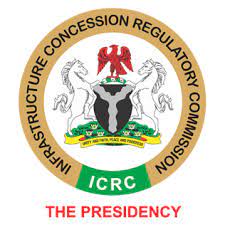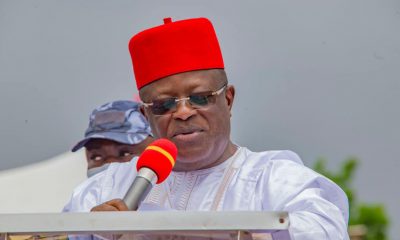Economy
Ceramic Production: An Agenda for Nigeria’s Economic Revival

The emergence and development of ceramic industries in Nigeria boomed between 1970 and 1980, riding on the back of availability of raw materials, massive human resources and adequate technology.
The earlier ceramic industries have all gone moribund and unlimited quantities of substandard ceramics products are being continuously imported into the country.
Prior to 1980, the ceramic sector was considered as one of the Small and Medium Scale Industries that contributed importantly to the construction industry, export earnings and employment in Nigeria.
Today, there are only ten operating ceramic industries in Nigeria because of several problems ranging from lack of workforce with adequate generic and technical skills, haphazard way of raw material mining, trade barriers and others.
Hence, the functioning ceramic industries are no longer performing creditably and can not play the expected vital and vibrant role in the economic growth and development of Nigeria.
This situation has been of great concern to the citizenry, operators, practitioners and the Organised Private Sector(OPS).
The situation is more disturbing and worrying when compared with what other developing and developed countries have been able to achieve with their ceramics industries.
Notably, Nigeria occupies eight position among the top 18 emerging economies for ceramics trade, but it is the only country in the world without significant ceramics exports in spite of her enormous solid mineral resources.
The state of ceramic manufacturing business in Nigeria concentrated only on ceramic wall and floor tiles, with virtually no meaningful efforts on the wide range products of tablewares, sanitary wares, china wares, porcelain, electrical porcelain insulators, refractories, structural clay bricks among others.
Currently, the introduction of ‘intelligent ceramics’ where ceramic application is being utilised across several sectors of life such as housing, healthcare and automobile etcetera, could be critical in restoring wealth to the country’s economy.
It could, therefore, be a critical key to unlocking next-generation energy storage and enabling
future generations to harness renewable technologies.
According to research, sensors build into ceramic flooring can detect human presence and activate traffic signals, while the advanced products hold enormous developmental potential for global resource efficient solutions.
Some end products of Ceremics
Mr Patrick Oaikhinan, the only Professor of Ceramics Engineering in Nigeria, said that
the industry, upon revitalisation, could be a critical focus for the new administration to employ not less than five million Nigerians directly and indirectly.
This, he said, was achievable if the government could mobilise human and financial resources needed to solve the technical, economic and constraints hindering the sector.
Oaikhinan noted that 13 ceramic industries namely Okigwe Pottery, Richware Ceramics, Modern Ceramics, Quality Ceramics, Nigerian Italian Ceramics, Arewa Ceramics, Jacaranda Pottery, Ceramics Manufacturer, Eleganza Ceramics, Maraba Pottery, Plateau Pottery, Ladi Kwali Pottery and Jos Museum Pottery have all gone moribund.
He said that the sector had been captured by the United Nations Millennium Development Goals that focuses on poverty reduction, gender equality and environmental sustainability, among others.
He charged the government to revitalise the domestic the industry sector for the emergence of new ceramic entrepreneurs and facilitating new business start-ups.
Oaikhinan emphasised the need to get the moribund ceramic industries back on track to enhance competitiveness, wealth and job creation.
“To achieve this, the nation needs to direct the National Universities Commission through the Federal Ministry of Education to make ceramic science, ceramic engineering, ceramic technology, and mineral engineering as stand-alone compulsory degree programmes in all universities in Nigeria.
“This is necessary as the non- inclusion of these ceramic courses in the over 220 universities in Nigeria have blocked the avenues for people with abiding interest in ceramics as a career.
“Government must formulate policies, provide general guidelines for the formation of ceramic industrial clusters, provide financial instruments for solid mineral characterisation and ceramic capacity building and skills development, technology development for smart, sustainable and inclusive ceramic growth.
“Policy makers should create a supportive regulatory framework to keep ceramics manufacturing competitive and make the sector a contributor to the inclusive and sustainable development of Nigeria.
“Nigeria must establish ceramic skills acquisition centre or academy to support the resurgence of the local ceramic industry through the building of bridges between industry and education to ensure there is a skilled workforce for the future, as well as leading young people to a career for life,” he said.
He also emphsised the need for interface with external assistance such as JICA-Japan, GTZ-Germany, USAID-United States and others, to re-engineer and reposition the industry.
Oaikhinan urged the government to tackle issues of international market access and trade barriers vide a trade policy instrument to encourage the domestic industry.
He added that string actions must be taken against all unfair trade practices, including counterfeiting, infringement of intellectual property rights, dumping and others.
“As Nigeria gradually recovers from the debilitating effect of COVID-19 pandemic, its impact on the economy and with a new government in place, Nigeria needs to beam its searchlight on several areas hitherto neglected to revamp the economy.
“Wealth can be generated from the exploitation of ceramic solid minerals such as kaolin, ball clays, feldspar, quartz or silica sand, calcium carbonate, talc, bentonite, and so on.
“These minerals, if processed, can contribute 511.57 billion dollars to the Nigerian economy and an approximately 2.1 billion dollars can be saved on varieties of ceramics importation by 2025,” he said.
Another contributor, Dr Patrick Irabor, a Raw Materials, Ceramic Research and Development Consultant, advanced reasons for human capital development, local raw materials exploitation and processing, by public and private stakeholders.
He said this would help to reposition the ceramic manufacturing industry within the next 20 years.
According to Irabor, Nigeria is losing out on the vast global ceramic market, estimated to be about 240 billion dollars by the Ceramic World Review.
He demanded explanation for the collapse of the industry in view of the availability of local raw materials for ceramic development and production.
In Irabor’s views, the collapse were due to poor quality raw materials and absence of the primary raw materials processing industries in Nigeria.
He added that most of the moribund ceramic industries in Nigeria collapsed due to shortage of expertise and skilled labour, lack of value added raw materials, poor technology and management skills.
Irabor said revitalisation of these ceramic industries could begin with the sensitisation and re-awakening of investment interest of relevant stakeholders, especially where public and private sectors are involved.
He said Nigeria must conduct a full and complete technical appraisal and feasibility study on the moribund plants as well as exploration of investment capital
through public-private partnership and technical-foreign investment.
“Nigeria offers a formidable market potential for a wide variety of manufactured goods and services,
”However, the current situation in the ceramic sector in Nigeria, where only eight companies focusing on tiles alone are operational does not offer positive prospects to contribute handsomely to the nation’s Gross Domestic Product(GDP)
“It is certain that the revitalisation of moribund ceramic industries will drive the growth of a wide-range of allied industries.
“This the chemical, metallurgical, energy, power generation and transmission among others that would contribute to the nation’s GDP.
“Added to these, would be the conventional application of ceramic products and services in housing, hospitals, hotels, educational institutions, research centres, industries, restaurants, general building construction and value chain enterprises, from which government can generate revenue.
“Therefore, with appropriate investment, manpower, machinery and raw materials, the revitalisation and reactivation of these moribund industries, will no doubt, revolutionise the ceramic manufacturing business in Nigeria and the West Africa sub-region,” he said.
Summarily, it is observed that Nigeria is still decades behind in achieving the level of ceramic product-range development and production to offer significant impact on the national GDP.
With the current level of ceramic tile production of over 100 million square meters in Nigeria alone, there are prospects for N the country to be at par with China and Indian if the revitalisation of the moribund industries are diligently implemented. (NAN)
Economy
NGX Closes Positive, Investors Gain N74bn

To end the week, the stock market rebounded from previous losses, gaining N74 billion.
Investor interest in MTN Nigeria, FBN Holdings, Guaranty Trust Holding Company (GTCO) and other equities lifted the market.
Notably, the market capitalisation opened at N56.014 trillion, adding N74 billion or 0.
13 per cent to close at N56.088 trillion.The All-Share Index also advanced by 0.
13 per cent, or 129.44 points, closing at 97,606.63, compared to 97,477.19 recorded on Thursday.As a result, the Year-To-Date (YTD) return increased by 30.54 per cent.
The market breadth closed positive, with 31 gainers and 19 losers on the floor of the Exchange.
On the gainers’ chart, Consolidated Hallmark Plc and Sterling Nigeria led by 9.
45 per cent each to close at N1.39 and N4.98 per share respectively.Mecure followed by 9.19 per cent to close at N10.10, Regency Alliance Insurance gained 9.09 per cent to close at 72k, while Fidson Healthcare Plc increased by 8.24 per cent to close at N15.10 per share.
Conversely, Deap Capital Management and Trust led the losers’ chart by 9.93 per cent to close at N1.36, NEM Insurance trailed by 9.71 per cent to close at N7.90 per share.
Daar Communications also lost 9.52 per cent to close at 57k, Tantalizers shed 9.09 per cent to close at 60k, while Dangote Sugar declined by 3.31 per cent to close at N31 per share.
Analysis of the market activities showed trade turnover settled higher relative to the previous session, with the value of transactions up by 20.33 per cent.
A total of 304.43 million shares valued at N5.60 billion were exchanged in 6,950 deals, compared with 277.75 million shares valued at N4.65 billon in 7,091 deals traded in the previous session.
Meanwhile, Access Corporation led the activity chart in volume and value with 68.26 million shares valued at N1.34 billon.(NAN)
Economy
NES Decries Rising Inflation, Unemployment, Poverty, Others

By David Torough, Abuja
The Nigerian Economic Society (NES) has decried Nigeria’s socioeconomic dilemmas, including; low personal incomes, dysfunctional education, healthcare systems, unemployment, rising inflation, poverty, amidst other critical issues.
This was part of the communique at the end of the association’s 65th annual conference held recently in Abuja with the theme: Socioeconomic Development in Nigeria: Imperatives, Implications, and Impacts.
It emphasised that the factors greatly contribute to insecurity, food scarcity, energy poverty, widening social inequality as macroeconomic instability and called on relevant stakeholders to urgently address the challenges.
President Bola Tinubu who was represented by the Vice President, Kashim Shettima through
Dr. Tope Fasua, underscored the
pivotal role of economists in shaping national development.
Tinubu reiterated the importance of their role to make the citizens feel integral and empowered, knowing that their contributions were crucial to the country’s development.
He urged them to approach the economy optimistically, stressing that their work was crucial, and that improvement was
always possible.
In his remarks, Minister of Budget and National Planning, Atiku Bagudu underscored the importance of socioeconomic resilience amidst global economic challenges.
He acknowledged the relevance of the conference theme, stating its timeliness in addressing Nigeria’s development needs.
On his part, Minister of Finance and Coordinating Minister of the Economy, Olawale Edun who delivered the keynote address on “Leveraging Economic Reforms to Leapfrog Nigeria’s Socioeconomic Development,” underscored the potential benefits of these reforms and stressed the need to better utilise Nigeria’s human and natural resources to spur socio-economic development.
He predicted that while structural reforms might cause short-term economic shocks, they would stabilise the economy in the long run, bringing hope for a brighter future.
In his presentation, the NES President, Professor Adeola Adenikinju who presented “Nigeria’s Socioeconomic Challenges: Lessons from the Structural Adjustment Programmes,” recommended:
Instituting an economic governance structure for the country, designating
some Ministries as economic ministries that qualified economists and allied professionals
must staff, adopting macroeconomic models to analyse the impacts of policies and assess
alternative scenarios.
Adenikinju also recommended; implementing export-led growth strategies by promoting value-
added exports and incentives for export-oriented industries and infrastructure, prioritising agro-allied industries to boost socioeconomic outcomes, implementing targeted subsidies or social safety nets to cushion vulnerable populations against the immediate impacts of reforms, amongst others.
The 65th NES Conference provided significant insights into Nigeria’s socioeconomic
development challenges and proposed actionable recommendations.
Participants emphasised the need for visionary leadership, policy synergy, and a commitment to long-term economic transformation to ensure sustainable development for Nigeria.
Economy
Infrastructure Devt.: ICRC to Issue Approval Certificates Within 7 Days – DG

By Tony Obiechina, Abuja
The Infrastructure Concession Regulatory Commission (ICRC) says it will henceforth issue Outline Business Case (OBC) Certificate of Compliance and the Full Business Case (FBC) Certificate of Compliance within seven days.This follows the charge by President Bola Ahmed Tinubu to the Director General of the Commission, Dr Jobson Oseodion Ewalefoh “to accelerate investment in National Infrastructure through innovative mobilization of private-sector funding”.
President Tinubu also charged him to work assiduously to boost infrastructure development in Nigeria as part of the renewed hope agenda of the current administration.In view of the above, Dr Ewalefoh-led management team of the ICRC has streamlined the approval processes of the commission to issue its certificates of compliance within seven days. This will accelerate the turnaround time for approvals by the Commission.“In line with the charge of His Excellency, President Bola Ahmed Tinubu, GCFR, and following his Renewed Hope Agenda, we have streamlined and updated our approval processes to issue either of the Outline Business Case Certificate of Compliance (OBC) and the Full Business Case Certificate of Compliance (FBC) to Ministries, Departments and Agencies (MDAs) that meet the requirements within seven days.“This is part of efforts by the current administration to accelerate infrastructure development, bridge the infrastructure gaps and stimulate the economy through investment of private sector funds in Public Private Partnership endeavours.“By streamlining our processes, the Commission is in no way foregoing any of its stringent approval steps or key requirements, therefore, only business cases that are viable, bankable, offer value for money and meet all other requirements will be approved.“The ICRC cannot do it alone, therefore I implore all chief executives of MDAs to match our momentum and align with this charge of Mr. President to accelerate Infrastructure development and ensure that PPP projects are not stalled at any point but delivered within record time.“The Commission is ready to partner and collaborate with all MDAs to actualize this,” he said.In a statement by Ifeanyi NwokoActing Head, Media and Publicity on Monday the ICRC DG in August rolled out a six-point policy direction which among others, focused on accelerating PPP processes, boosting inter-agency collaboration and ensuring innovative financing.The ICRC was established to regulate Public Private Partnership (PPP) endeavours of the Federal government aimed at addressing Nigeria’s physical infrastructure deficit which hampers economic development.



















